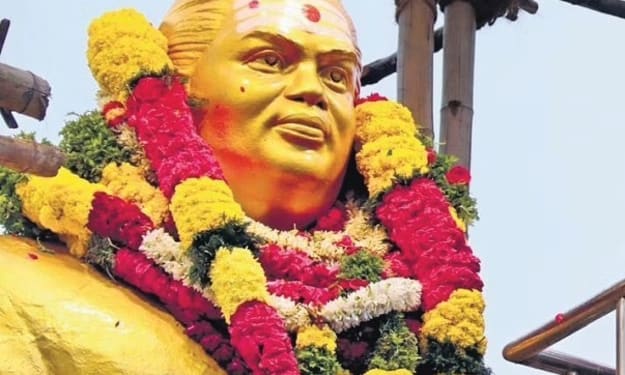Remembering the APS Massacre: A Dark Day in Pakistan's History
The APS Massacre of 2014: Turning Tragedy into Resilience and Resolve

Introduction:
On December 16, 2014, Pakistan witnessed one of its darkest and most tragic days in recent history—the attack on the Army Public School (APS) in Peshawar. This horrifying incident, often referred to as the "APS Massacre," was a gruesome act of terrorism that left an indelible scar on the nation's collective memory. This article delves into the tragic events of that day, the aftermath, and the enduring impact on Pakistan's fight against terrorism.
The Attack:
On that fateful day, heavily armed militants from the Tehrik-i-Taliban Pakistan (TTP) stormed the APS in Peshawar, which primarily catered to the children of military personnel. The attackers, numbering several, entered the school premises, spreading terror and chaos. They went from classroom to classroom, indiscriminately opening fire on students and teachers.
The brutal assault lasted for several hours, resulting in the deaths of 132 innocent children, aged between 8 and 18, and 16 staff members. The APS Massacre was a stark reminder of the ruthlessness of terrorist organizations that targeted the most vulnerable in society to further their nefarious agendas.
The Aftermath:
National Mourning: In the wake of the APS Massacre, Pakistan declared a three-day national mourning period, and the entire nation was plunged into sorrow and grief. Vigils, memorial services, and protests against terrorism swept across the country.
Public Outcry: The APS Massacre triggered a surge of public anger and condemnation against terrorism. It led to a unified call for stronger and more effective action against extremist groups.
Security Operations: Following the tragedy, the Pakistani military launched Operation Zarb-e-Azb, a major military offensive against militant groups in the tribal areas of Pakistan. This operation aimed to dismantle terrorist networks and their infrastructure.
National Action Plan: The Pakistani government formulated the National Action Plan (NAP) to combat terrorism comprehensively. It included measures such as stricter anti-terrorism legislation, the establishment of military courts, and efforts to counter hate speech and extremist ideologies.
Education Reforms: The APS Massacre highlighted the vulnerability of educational institutions to terrorist attacks. In response, Pakistan took steps to improve security at schools and implemented educational reforms.
International Solidarity: The international community expressed its solidarity with Pakistan in the aftermath of the tragedy. Nations worldwide condemned the attack and offered support in the fight against terrorism.
Enduring Impact:
The APS Massacre left an enduring impact on Pakistan, profoundly shaping its response to terrorism and extremism. While the incident was a harrowing tragedy, it also galvanized the nation to take more determined and coordinated action against terrorism. Some key long-term effects include:
Heightened Security: Security measures at educational institutions and public spaces were significantly enhanced to prevent future attacks.
Increased Counterterrorism Efforts: Pakistan intensified its military operations against extremist groups, resulting in the elimination of several militant leaders and the dismantling of their sanctuaries.
International Cooperation: Pakistan's efforts to combat terrorism garnered increased support and cooperation from the international community.
Strengthened Resolve: The APS Massacre strengthened the resolve of Pakistanis to stand united against terrorism. The tragedy served as a reminder of the importance of national unity in the face of such challenges.
Symbol of Resilience: The students and staff of APS who lost their lives became symbols of resilience and courage in the face of adversity. Their memory continues to inspire Pakistanis to strive for a more peaceful and secure future.
Conclusion:
The APS Massacre was a heart-wrenching tragedy that shook Pakistan to its core. The loss of innocent lives, especially those of young students, left an indescribable void in the hearts of the nation. However, from this tragedy emerged a renewed determination to confront and eradicate terrorism. Pakistan's response, including intensified security operations, legal reforms, and international cooperation, reflects a nation's unwavering commitment to ensuring that such horrors are never repeated. The APS Massacre serves as a somber reminder of the price paid in the fight against terrorism and the resilience of a nation in the face of adversity.
About the Creator
Mukhtar Hussain
Human being but being Human !





Comments (1)
The loss of innocent children in the APS Massacre is a heart-wrenching tragedy that leaves a deep and lasting emotional impact. Their lives were cut short in a senseless act of violence, and their potential, dreams, and laughter were taken away from them. It's a stark reminder of the cruel and indiscriminate nature of terrorism, and it breaks our hearts to think of the pain and fear they must have endured on that dreadful day. These children are not forgotten; they are a symbol of the resilience and determination of a nation that vows to protect its future generations from such horrors.